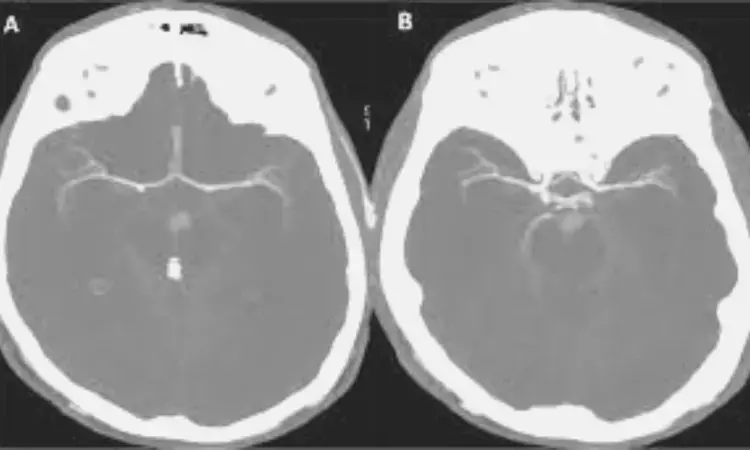- Home
- Medical news & Guidelines
- Anesthesiology
- Cardiology and CTVS
- Critical Care
- Dentistry
- Dermatology
- Diabetes and Endocrinology
- ENT
- Gastroenterology
- Medicine
- Nephrology
- Neurology
- Obstretics-Gynaecology
- Oncology
- Ophthalmology
- Orthopaedics
- Pediatrics-Neonatology
- Psychiatry
- Pulmonology
- Radiology
- Surgery
- Urology
- Laboratory Medicine
- Diet
- Nursing
- Paramedical
- Physiotherapy
- Health news
- Fact Check
- Bone Health Fact Check
- Brain Health Fact Check
- Cancer Related Fact Check
- Child Care Fact Check
- Dental and oral health fact check
- Diabetes and metabolic health fact check
- Diet and Nutrition Fact Check
- Eye and ENT Care Fact Check
- Fitness fact check
- Gut health fact check
- Heart health fact check
- Kidney health fact check
- Medical education fact check
- Men's health fact check
- Respiratory fact check
- Skin and hair care fact check
- Vaccine and Immunization fact check
- Women's health fact check
- AYUSH
- State News
- Andaman and Nicobar Islands
- Andhra Pradesh
- Arunachal Pradesh
- Assam
- Bihar
- Chandigarh
- Chattisgarh
- Dadra and Nagar Haveli
- Daman and Diu
- Delhi
- Goa
- Gujarat
- Haryana
- Himachal Pradesh
- Jammu & Kashmir
- Jharkhand
- Karnataka
- Kerala
- Ladakh
- Lakshadweep
- Madhya Pradesh
- Maharashtra
- Manipur
- Meghalaya
- Mizoram
- Nagaland
- Odisha
- Puducherry
- Punjab
- Rajasthan
- Sikkim
- Tamil Nadu
- Telangana
- Tripura
- Uttar Pradesh
- Uttrakhand
- West Bengal
- Medical Education
- Industry
Use cerebral CT angiography to support clinical diagnosis of death using neurological criteria: Consensus statement

UK: A recent article published in Anaesthesia reports a consensus guideline on using cerebral computed tomographic angiography as an ancillary investigation to support a clinical diagnosis of death using neurological criteria.
The multidisciplinary consensus statement was produced after the Faculty of Intensive Care Medicine recommendation to develop a UK guideline for ancillary investigation, when required, to support the diagnosis of death using neurological criteria. A multidisciplinary panel reviewed the literature and UK practice in diagnosing death using neurological criteria and recommended cerebral CT angiography as the ancillary investigation of choice when death cannot be confirmed by clinical criteria alone.
Cerebral CT angiography has been shown to have 100% specificity in supporting a diagnosis of death using neurological criteria and is an investigation available in all acute hospitals in the UK. A standardised technique for performing the investigation is described alongside a reporting template. The panel could not recommend ancillary testing in children or patients receiving extracorporeal membrane oxygenation.
The recommendations are given below:
- Ancillary investigation is required in the following circumstances:
- a comprehensive neurological examination, including the apnea test, is not possible; and/or
- continuing effects of confounding conditions cannot be excluded.
- Ancillary investigation should be considered in the following additional circumstances:
- uncertainty regarding the interpretation of possible spinally mediated movements; and/or
- to promote understanding of the clinical confirmation of death using neurological criteria to families who are uncertain or unaccepting of such a diagnosis.
- Requests for cerebral CT angiography must be made by direct discussion between the treating intensive care consultant and radiology consultant. It should be made clear that the request is to support the clinical diagnosis of death using neurological criteria.
- Cerebral CT angiography becomes the standard ancillary investigation of choice for supporting the diagnosis of death using neurological criteria in the UK.
- A clinical diagnosis of death using neurological criteria cannot be supported if the cerebral CT angiogram demonstrates contrast opacification of any of the vessels specified in the four-point criteria.
- The process of diagnosing death using neurological criteria should be guided and documented using the forms for adults endorsed by the Faculty of Intensive Care Medicine and Intensive Care Society and the paediatric versions endorsed by the Royal College of Paediatrics and Child Health and Paediatric Critical Care Society.
- A system of auditing national practice on the use and outcomes of ancillary investigations to support a clinical diagnosis of death using neurological criteria should be established. We suggest that this is done by inclusion into the potential donor audit, which already collects data on all patients in the UK in whom a diagnosis of death using neurological criteria is undertaken.
- There is insufficient evidence to make a consensus recommendation for using cerebral CT angiography as an ancillary investigation to support the clinical diagnosis of death using neurological criteria in patients receiving extracorporeal membrane oxygenation.
- There is insufficient evidence to make a consensus recommendation for using cerebral CT angiography as an ancillary investigation to support the clinical diagnosis of death using neurological criteria in paediatrics. Where cerebral CT angiography is used, it should be reported by a neuroradiologist experienced in paediatrics. Ancillary investigations should not be used in infants aged < 2 months.
Reference:
"The use of cerebral computed tomographic angiography as an ancillary investigation to support a clinical diagnosis of death using neurological criteria: a consensus guideline" was published in the journal Anaesthesia.
DOI: https://doi.org/10.1111/anae.15950
Dr Kamal Kant Kohli-MBBS, DTCD- a chest specialist with more than 30 years of practice and a flair for writing clinical articles, Dr Kamal Kant Kohli joined Medical Dialogues as a Chief Editor of Medical News. Besides writing articles, as an editor, he proofreads and verifies all the medical content published on Medical Dialogues including those coming from journals, studies,medical conferences,guidelines etc. Email: drkohli@medicaldialogues.in. Contact no. 011-43720751


